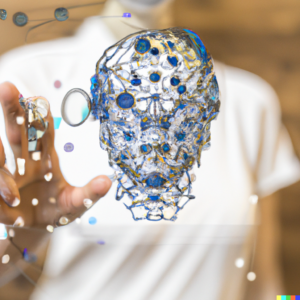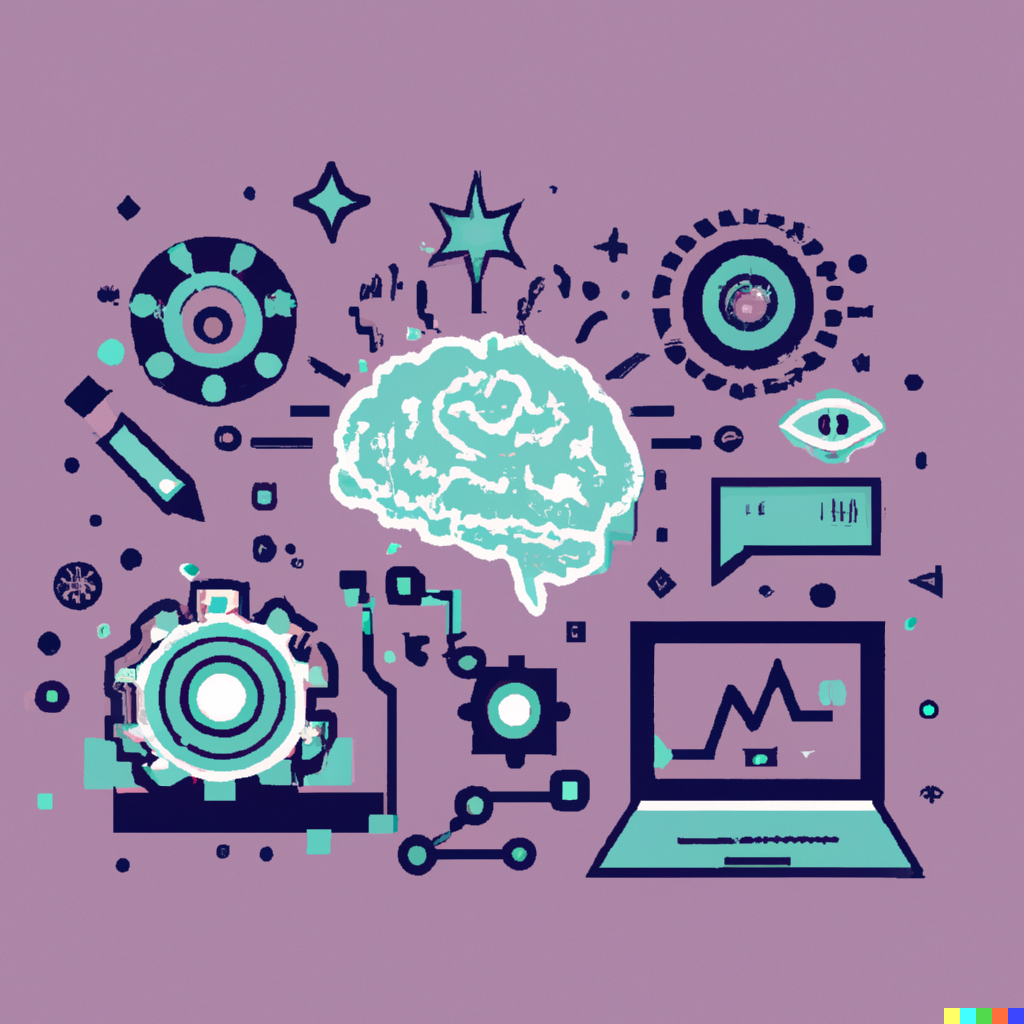AI’s Role in Longevity and Anti-Aging
 Artificial Intelligence (AI) is swiftly becoming a transformative force in the realm of longevity and anti-aging. With its unparalleled ability to sift through vast datasets, AI is paving the way for groundbreaking advancements in healthcare technology, directly impacting our understanding and approach to aging.
Artificial Intelligence (AI) is swiftly becoming a transformative force in the realm of longevity and anti-aging. With its unparalleled ability to sift through vast datasets, AI is paving the way for groundbreaking advancements in healthcare technology, directly impacting our understanding and approach to aging.
How AI and Science-Based Health Care Technology Impact Longevity and Anti-Aging
The power of AI lies in its capability to process and analyze immense volumes of data with precision. This is especially crucial in the medical field, where large datasets from clinical trials, genetic research, and patient histories can be analyzed. AI algorithms can discern patterns in this data, leading to better-informed decisions in patient care and treatment plans. For instance, AI can help in predicting the onset of age-related diseases, allowing for preventive measures to be taken in advance.
Dr. David Sinclair’s Pioneering Research
Recent research by Dr. David Sinclair has shed light on the potential of slowing down, and even reversing, the aging process. By leveraging AI tools, researchers can delve deeper into the molecular and genetic aspects of aging, potentially unlocking methods to extend the human lifespan and improve the quality of life in our later years. A highly recommended read is Dr. Sinclar’s recent book, LifeSpan – Why we age, and why we don’t have to.
The Holistic Approach to Anti-Aging
 While technological and scientific advancements are crucial, it’s essential to remember the foundational pillars of longevity: diet, exercise, sleep, and stress management. A balanced diet, regular physical activity, adequate sleep, and effective stress management techniques play pivotal roles in slowing down the aging process. AI can assist in these areas by providing personalized diet plans, exercise regimes, sleep schedules, and stress relief methods based on individual data.
While technological and scientific advancements are crucial, it’s essential to remember the foundational pillars of longevity: diet, exercise, sleep, and stress management. A balanced diet, regular physical activity, adequate sleep, and effective stress management techniques play pivotal roles in slowing down the aging process. AI can assist in these areas by providing personalized diet plans, exercise regimes, sleep schedules, and stress relief methods based on individual data.
FAQ: AI and Longevity, Slowing Down Aging, and Age Reversal
-
What is the role of AI in longevity and age reversal research?
Answer: AI plays a pivotal role in longevity and age reversal research by analyzing vast amounts of data, predicting potential drug interactions, and simulating biological processes. Machine learning models can identify patterns and correlations in genetic, metabolic, and cellular data that might be overlooked by human researchers. This accelerates the discovery of potential anti-aging compounds and therapeutic interventions.
-
Can AI predict how long a person will live?
Answer: While AI can analyze numerous health and genetic factors to provide estimates about an individual’s lifespan, it’s essential to understand that these are predictions and not certainties. Many external factors, such as lifestyle choices, accidents, and unforeseen health issues, can influence longevity. However, AI can offer insights into potential health risks and suggest preventive measures.
-
Is age reversal scientifically possible?
Answer: Age reversal, in the sense of reversing the biological markers of aging, has shown promise in early research, particularly in animal models. Some interventions, like senolytic drugs and gene therapies, have demonstrated the potential to reverse certain aging processes. However, translating these findings to humans and achieving complete age reversal remains a complex challenge and is still a topic of ongoing research.
-
 How does slowing down aging benefit society?
How does slowing down aging benefit society?Answer: Slowing down aging can lead to an extended period of healthy life, often referred to as “healthspan.” This means fewer age-related diseases like Alzheimer’s, heart disease, and diabetes, leading to reduced healthcare costs. Additionally, a longer health span can result in prolonged productivity, allowing individuals to contribute to society for an extended period.
-
Are there any ethical concerns related to using AI for longevity research?
Answer: Yes, there are several ethical considerations. These include concerns about data privacy (as AI requires vast amounts of personal health data), the potential for increased lifespan leading to overpopulation, and the socio-economic implications of a longer-lived society. There’s also the question of accessibility: ensuring that advancements in longevity and age reversal are available to all and not just a privileged few.
Conclusion
AI is not just a technological marvel; it’s a tool that holds the promise of a brighter, longer future for humanity. By embracing AI and the latest in healthcare technology, we can look forward to a future where aging is not a decline but a new chapter of growth and discovery.
Note: This is a general overview based on the content provided and the topics you mentioned. Further details and specifics can be added based on more in-depth research or specific points you’d like to emphasize.
Frequently Asked Questions (FAQ) About AI Software Tools
Q: What are some examples of cutting-edge AI software tools?
A: Some examples of cutting-edge AI software tools include machine learning platforms, natural language processing (NLP) tools, and computer vision software.
Q: How can businesses use AI software tools to improve their operations?
A: Businesses can use AI software tools to analyze large amounts of data, make better-informed decisions, automate repetitive tasks, and improve customer service.
Q: How can individuals benefit from learning about AI software tools?
A: By learning about AI software tools, individuals can gain valuable skills that are in high demand in today’s job market and improve their own lives and careers.
Q: Is AI just for tech companies or can other industries also benefit from it?
A: AI can be applied across a wide range of industries, including healthcare, finance, retail, and manufacturing.
Q: How much does it cost to implement AI software tools for a business?
A: The cost of implementing AI software tools can vary depending on the specific tools and the size of the business. Some AI software tools are available on a subscription basis, while others require a one-time purchase. It’s also important to consider the cost of training employees on the new software.
Q: How can I stay up-to-date on the latest developments in AI software tools?
A: To stay up-to-date on the latest developments in AI software tools, you can follow industry news, attend conferences, participate in online communities, and follow our blog, podcast, and YouTube channel.



Leave A Comment